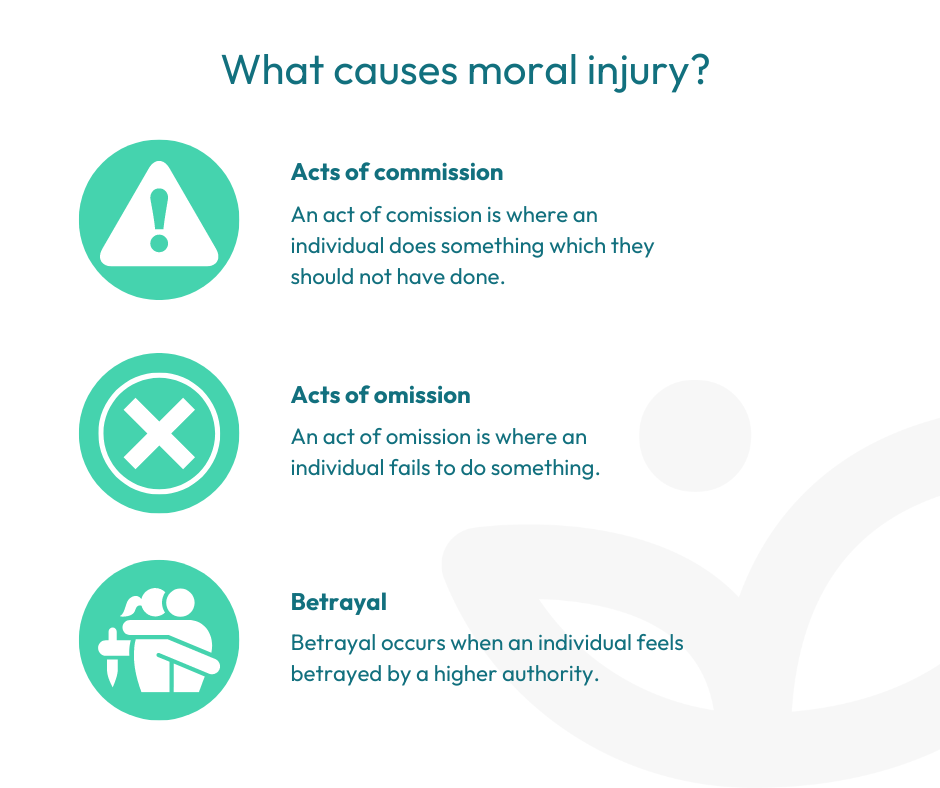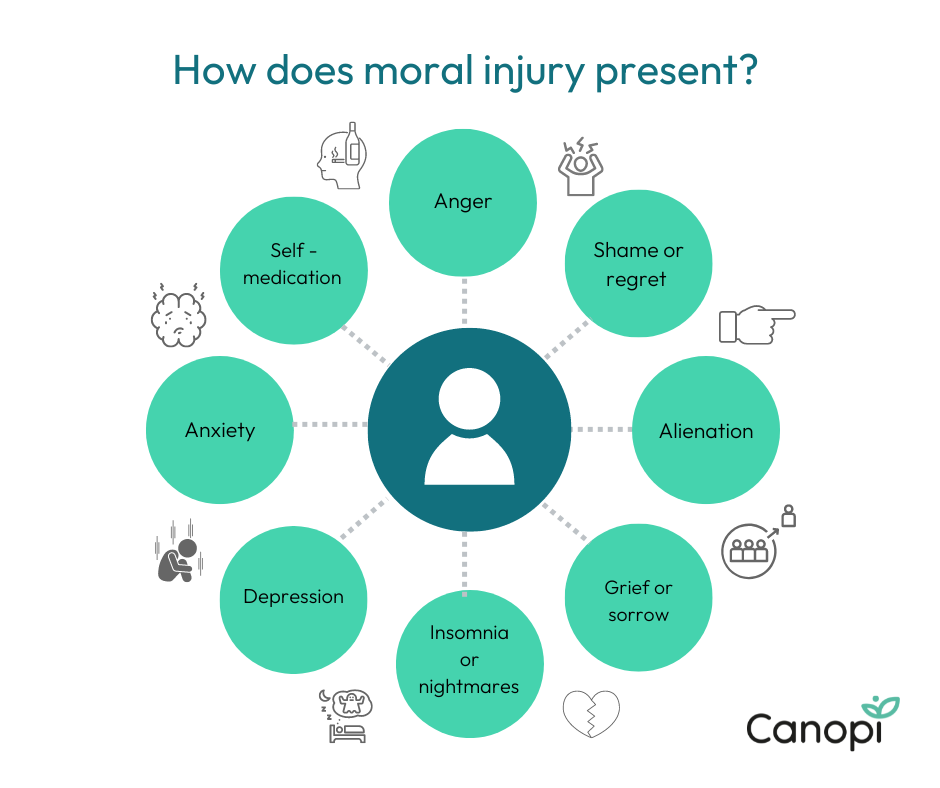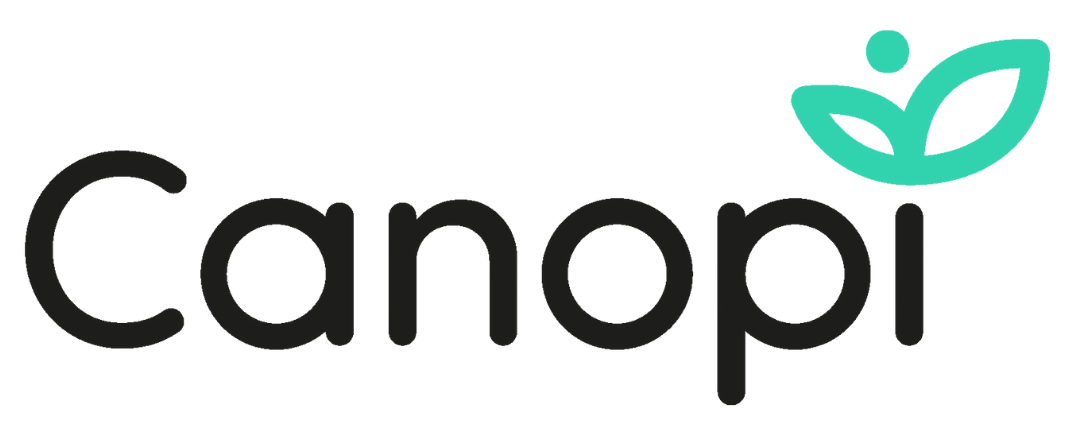Moral dilemmas in the workplace
Are you suffering with a sense of guilt, shame, remorse or regret after witnessing, perpetrating or learning about an event which goes against your beliefs? Does this leave you reconsidering your career, for example, changing your role? Reducing your working hours? Leaving your workplace or even your profession?
You may be experiencing moral injury.
Moral injury is “…psychological distress that results from actions, or the lack of them, which violate someone’s moral or ethical code,” (Greenberg et al, 2020). In our last blog entry, Rachel discovered that she was experiencing moral injury as a result of her experiences as an intensive care nurse.
Individuals are more likely to experience moral injury due to a lack of preparation for the moral dilemmas which they might face during their career and insufficient, timely and appropriate organisational support.
During the unprecedented COVID-19 pandemic, such ‘moral dilemmas’ might be:
- Treatment decisions and end-of-life care
- Unable to optimise end of life care.
- Unable to uphold and maintain core professional values and standards.
- Balancing duty to patients with family and friends.
- Providing care with constrained or inadequate resources: for example, insufficient or inadequate personal protective equipment; ventilators.
Greenberg et al, 2020.

Health and social care workers may be exposed to morally injurious events, from instances where they are asked to act, or in some cases instructed not to, which go against their training and sense of right and wrong, or where they may experience betrayal at work.
These acts can be carried out by the individual or another person in a high stakes situation involving a vulnerable person, such as a child, the elderly, or someone who is sick.
It’s different from Post-Traumatic Stress Disorder (PTSD)
Someone who is experiencing moral injury may present with a variety of emotions and various coping strategies to deal with the associated feelings of guilt, shame, regret or sorrow.

This may sound a lot like PTSD, but moral injury is “…a separate aspect of trauma exposure, distinct from PTSD.” (Barnes et al, 2019).
Whilst many of the symptoms overlap and the two can co-occur, moral injury:
- Is not classified as a mental illness.
- Develops as a result of direct or indirect threat to moral beliefs, not threat to life, serious injury or sexual violation.
- Is not fear-based and more associated with emotions that develop after the event such as guilt and shame.
What can be done?
Though moral injury is not classified as a mental illness, it can lead to one. There is no linear course of treatment, though more traditional therapies are often used, such as talking therapies. Greenberg et al also emphasise the importance of mitigative measures when preparing someone for the moral dilemmas which they might face, defined as “…frank assurances, not false reassurance.”
Get help; refer yourself today
Sound familiar? If you recognise some of the signs of moral injury in yourself, you may want to speak to a Canopi professional.
Our advisors are here to help health and social care workers in Wales by providing free and confidential mental health support.
- Find out more about us.

